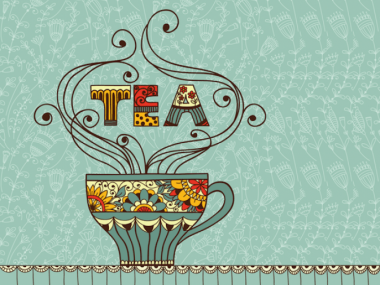Placeholder Names: Thingamajigs, Doohickeys, and Whatchamacallits
When you don’t know the name for something, you need a placeholder like “thingamajig,” “doohickey,” and “whatchamacallit.”

What do you say when you don’t know the name of a gadget or item or when you can’t remember what it’s called? The word “thing” works, but English has a number of other words called “placeholder names” that you can use. Some sound a little silly, and as you’ll learn by the end of the episode, one is even sweet and delicious.
Thingamajig
Plain old “thing” has been used in English since before the year 900 and comes from Old English. Originally, way back in Old English, a thing was a meeting. And although today it has many other uses, it can still refer to a meeting or event as in “I’m going to a thing tonight.” This sense of the word “thing” is a cognate of, or a word related to, the Dutch and German form of the word, which is “ding.”
Now get ready for some interesting variations of “thing.” The one you might hear or use most often is “thingamajig.” This can be spelled with a letter A in the middle or a U. Other forms include “thingy,” “thingum,” “thingummy,” “thingumabob,” “thingumbob,” “thingumadoodle,” “thingamadudgeon,” and “thingamananny.” There are lots of things to say about these words, but we’re going to focus on the most common one.
“Thingamajig” was first used around 1870. Its origin is unclear, but the word is a combination of “thingum” and “jig.” Dictionary.com says that the word is “metrically patterned like gobbledygook” and that it might come from “the gradational compound ‘thingum-thangum,’” which is also based on the word “thing.” A gradational compound is when a word is duplicated with a variation in the vowels. Besides “thingum-thangum,” other examples are “mishmash,” “ding-dong,” and “wishy-washy.” As for “jig,” the word has a number of meanings when it’s used as a noun. It refers to certain parts of machinery, specific devices used for fishing, and a mining apparatus.
Dingus
Thinking back for a second, you may remember that the English word “thing” is related to the German and Dutch word “ding.” The word “dingus” is yet another way to refer to a gadget or device. It also began its life around 1870.
Doodad and Doohickey
Now for another group of fun placeholder names that refer to a frivolous decoration or a gadget. “Doodad” and “doohickey” are the most common ones in this bunch. Other variations most of us have never heard include “do-funny,” “doohinky,” “do-jigger,” “doowhangum,” and “do-whistle.” Both “doodad” and “doohickey” originated in America in the early 1900s.
“Doodad” may also be a gradational compound, possibly based on a meaning of the word “dad” that is used in Scotland and northern England. In this sense, “dad” doesn’t mean “father”; it describes a lump or flake or piece of something, and is probably related to the word “dab,” as in “Have a dab of butter on your toast” or “I need a dab of rouge on my cheeks.” Someone who is flummoxed by fashion might describe a brooch or a fancy hair clip as a doodad that someone was wearing.
Language experts think the “doo” in “doohickey” is the same “doo” you find in “doodad,” but nobody knows the origin of the word “hickey.” Although today “hickey” usually refers to a mark left after a passionate kiss, it originally meant essentially the same thing as “doohickey.” Along the way, somebody just seemed to add the “doo” for fun.
Whatchamacallit
Now for the last word on the list of words to use when you don’t know or don’t remember the name of something, especially a device or gadget. This word might be the most fun of all. You might also consider it delicious, if you like candy. What am I talking about? “Whatchamacallit.” This word has the most recent origins of any word we have mentioned. It appeared in English between 1940 and 1945. Unlike some of the other words for gadget or thing, this word has a clear history. It’s a smashed-together way of saying the words “what you may call it” or “what do you call it.”
In addition, it is a candy bar produced by the Hershey Company. A Whatchamacallit Candy Bar contains “chewy caramel, rich chocolate, and peanut flavor.” It has been around since 1978. But this isn’t the only Hershey candy bar whose name is relevant to the topic of this episode. The company briefly produced one called “Thingamajig.” This limited-edition bar was released in 2009 and briefly brought back in 2011.
Conclusion
Although you usually know the name of the candy bar you want to buy, sometimes you don’t know the names of other things. You might use the old standbys “thingamajig” and “doodad” to refer to such items, but now you have other choices too. It’s unlikely that a candy bar called “Doowhangum” will appear anytime soon, but you can have fun saying this word and other unusual ones like it.
That segment was written by Bonnie Mills, author of “The Curious Case of the Misplaced Modifier,” who blogs at sentencesleuth.blogspot.com.
Image courtesy of Shutterstock.




